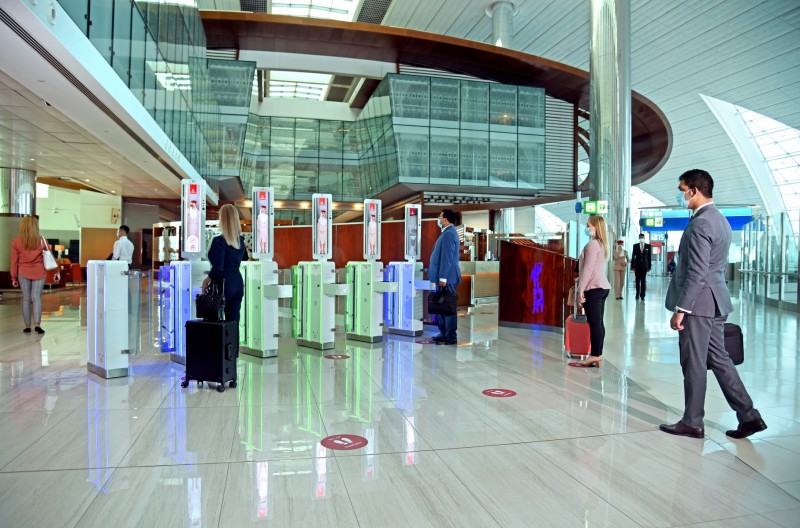Biometrics will have a key role to play in restoring passenger confidence in the airline industry during the current coronavirus crisis and once the world is finally free of the pandemic, according to Ricardo Vieira, regional director Middle East & Africa, Vision-Box.
Dubai-based Emirates Airline is leading the way, with the contactless airport experience open to passengers travelling from and through the emirate, Vieira told Arabian Business.
He said the technology, which was first introduced through Emirates back in November 2019 and relaunched in October last year after the coronavirus-enforced lockdowns, has taken on greater significance in light of the virus and necessary safety precautions.
He said: “The fact that you just look at the camera and the doors open and go, that created quite an excitement. Nowadays because of Covid it even has an added appealing factor which is that you don’t touch anything.
“The fact that you are in self-service mode and just presenting your face to a camera and you don’t need to touch anything and you won’t have an officer picking at your passport and boarding pass and then giving you it back, that’s a direct benefit.”
According to the Passenger Confidence Tracker from Inmarsat, which was released in November last year, 46 percent of passengers in the UAE said they have already taken a flight during the pandemic, compared to the global average of 34 percent. Only 21 percent said they are not willing to fly within the next year, compared to 35 percent globally.
Using the latest biometric technology, a mix of facial and iris recognition, Emirates passengers can check in for their flight, complete immigration formalities, enter the Emirates Lounge, and board their flights, simply by strolling through the airport. The various touchpoints in the biometric path allow for a hygienic contactless travel journey, reducing human interaction and putting emphasis on health and safety.
Adel Al Redha, Emirates’ chief operating officer, said: “We have always focused on providing a great customer experience at any touchpoint and now it is more vital than before to make use of technology and implement products, and introduce processes that focuses not only on fast tracking customers, but more importantly on health and safety during their travel journey.

“The state-of-the-art, contactless biometric path is the latest in a series of initiatives we have introduced to make sure that travelling on Emirates is a seamless journey and gives customers added peace of mind.”
The biometric touchpoints are installed at select First, Business and Economy Class check-in desks in Terminal 3 at DXB; immigration gates including a “smart tunnel”; Emirates’ premium lounge entrance at concourse B as well select boarding gates.
“We can enrol your face and after that we can say your face is your passport and your face is your boarding pass. You go through the airport, through many touchpoints, but you just need to present your face – we know who you are, we are expecting you,” said Vieira, who revealed plans could be approved this quarter to expand the system further.
He added: “I think the trend in the future will be, more and more, that you don’t need to stop, you just walk through the airport because the face recognition process will become more and more accurate.”
As well as Emirates, Vision-Box, which is also behind the implementation of smart gates at Dubai International Airport, is working on similar biometrics projects at Schipol Airport in Amsterdam and at India’s Bangalore International Airport.
Vieira said that, once passengers give consent to Emirates to hold their biometric data, it will remain on the system and used any time they are travelling through the airport.
“Your enrolment stays there, it’s not only valid for the journey, which is interesting because the next time you approach the check-in counter, the lady will know you and your travel details,” he said. “You will be recognised and all your data will be on her screen.”
As announced earlier this month, Emirates and Etihad Airways have partnered with the IATA to become among the first airlines in the world to trial a new app to help passengers manage their travel amid ongoing Covid-19 restrictions.
IATA Travel Pass enables passengers to create a ‘digital passport’ to verify their pre-travel test or vaccination meets the requirements of the destination.






